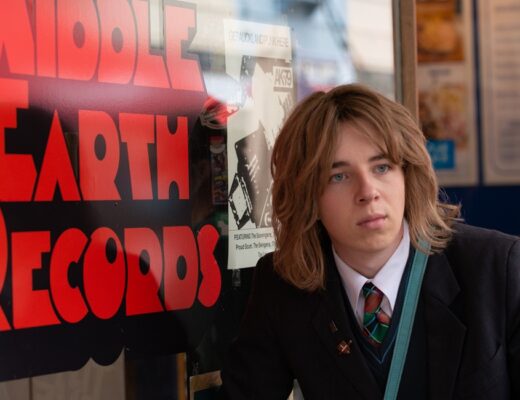Not quite the swing-for-the-fences sophomore audacity you might expect from the guy who made Hereditary — but certainly a film that never would have made it into the marketplace, as-is, without being anticipated as such — Ari Aster’s Midsommar is nonetheless very much in character: a gorgeous, tightly controlled, and deeply self-satisfied jerk-off poster child for a new wave of arthouse-inflected genre films that see deliberation as dread, and formal precision as a replacement for crafting actual narrative suspense. Florence Pugh (outstanding as usual despite being mostly a cipher) is Dani, fresh from a horrific family tragedy and trapped in a crummy, apparently codependent relationship with Christian (Jack Reynor). Hoping to regroup, she tags along with him, and his buddies, for a trip to a friend’s Swedish village during an annual festival. Anyone could tell you that they’re all in for a nasty surprise — especially given Christian’s cluelessness and exasperation in the face of Dani’s grief and the constant idiotic behavior of their traveling companions. Rather than ratcheting-up tension, though, Aster prefers to wallow in the admittedly superb and meticulous design of his village set while his characters remain hilariously oblivious to the inexorable threat awaiting them.
The film can’t support its ambitions of describing self-actualization in the face of grief and trauma and toxic relationships.
The mixture here of horror and comedy is surely not without precedent, but another of Aster’s great strengths is his cutting sense of humor, the way he constantly delights in the cruel ways people find to either ignore or reveal an awful truth. But Midsommar is also ponderous and over-directed, full of now-generic, ostentatiously symmetrical compositions and pointless trick shots from overhead or upside-down designed to make things seem disorienting. And that’s simply not enough to fill a tedious and inexcusable 140 minutes. Most of the shit finally hitting the fan occurs offscreen, in what’s clearly calculated to make Midsommar seem like it’s up to something more profound, and without the concrete examples of shock and terror that Aster evidently deems uninteresting and gratuitous, the film by consequence can’t support its ambitions of describing self-actualization in the face of grief and trauma and toxic relationships. What’s more, the ritual at the heart of the village (and the movie) is so self-consciously ambiguous that it could have just as easily been some innocuous tradition, and the film would still be able to pull on its over-articulated thread about the men in Dani’s life being competitive, gaslighting assholes. It barely even seems to matter that, during this whole time, Dani’s reeling from possibly the worst thing to ever happen to her. Midsommar completely deflates by the time it gets to where it’s going because the catharsis it’s aiming for doesn’t feel remotely earned. Too much undercooked psychotherapy, not enough smashed heads. We haven’t gone through anything but a long, boring trip.







